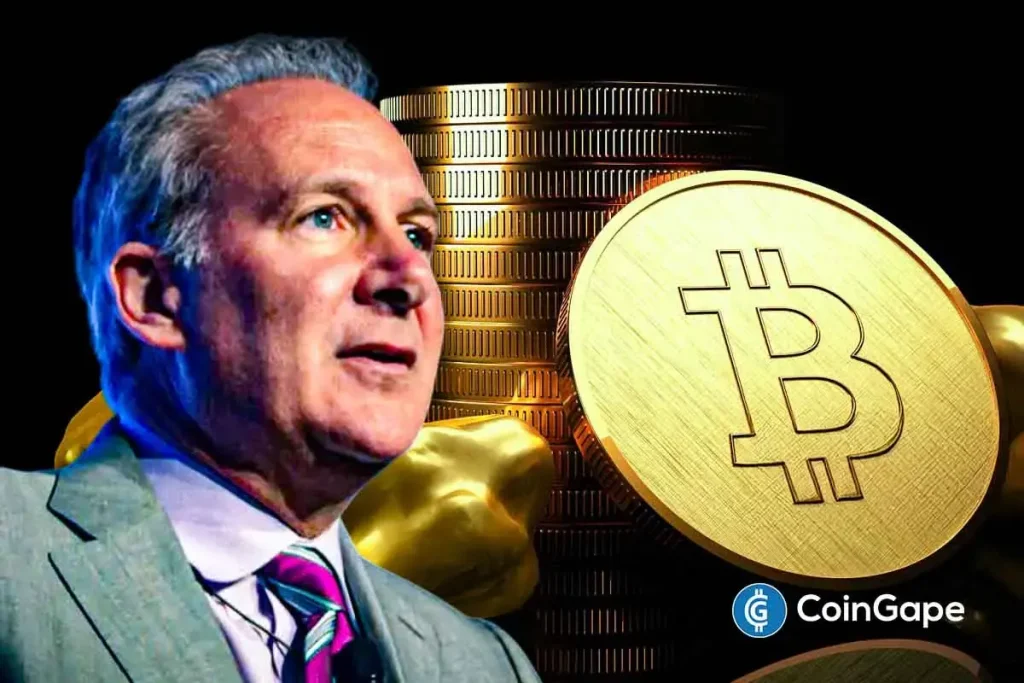Peter Schiff’s Critical Perspective on Bitcoin: The Debate Surrounding ‘Digital Gold’
Peter Schiff, a prominent economist and vocal critic of cryptocurrency, has once again ignited discussions about Bitcoin (BTC) with his recent negative assessment. By labeling BTC as a "digital risk" rather than the much-touted "digital gold," Schiff reinforces a long-held skepticism that challenges the foundation of Bitcoin as a safe-haven asset. This critique builds on his previous arguments that focus on Bitcoin’s volatility and risks, placing it in a perilous category alongside high-risk investments. In this article, we will delve into Schiff’s views on Bitcoin, analyzing the rationale behind his critical stance and exploring the ongoing debate about Bitcoin’s legitimacy as a digital asset.
Understanding Schiff’s Criticism of Bitcoin
At the core of Peter Schiff’s critique lies his assertion that Bitcoin’s volatility undermines its position as a reliable store of value. In a recent post on X, he reiterated that the digital asset’s unpredictable price fluctuations render it less secure compared to traditional safe-haven commodities like gold. Schiff draws comparisons between Bitcoin and penny stocks, emphasizing the speculative nature of cryptocurrencies, which he claims suffer from the same pitfalls as other high-risk investments. By categorizing BTC as a "digital risk," Schiff questions its suitability for long-term wealth preservation, advocating instead for assets that have proven their stability over time.
The Question of Bitcoin as a Strategic Reserve
A significant point raised by Schiff involves the ongoing discussions about Bitcoin being included in national strategic reserves. Recently, former US President Donald Trump signed an executive order proposing the establishment of a strategic Bitcoin reserve, a move that has inspired other countries to consider similar initiatives. Schiff directly challenged the rationale behind this approach, asking, "So why would anyone suggest holding it in a strategic reserve?" He posited that the narrative surrounding Bitcoin as a strategic reserve is quickly losing its validity, suggesting that confidence in Bitcoin is diminishing.
Debunking the Myth of Bitcoin as Digital Gold
Schiff’s dismissal of Bitcoin as "digital gold" has been a recurring theme in his commentary. He argues that this characterization is a "false narrative" that continues to be exposed as market conditions evolve. In a recent X post, he remarked that while inflation pressures mount and economic uncertainties grow, gold prices have soared to record highs, whereas Bitcoin has experienced significant downturns. Schiff observes that as the perceived value of Bitcoin diminishes, traditional assets like gold maintain their status as reliable stores of value, reinforcing his argument against Bitcoin’s legitimacy in that role. This skepticism is further underscored by Schiff’s prediction that Bitcoin could crash to as low as $10,000 amid ongoing market corrections.
The Market Reality of Bitcoin Amidst Criticism
Despite Schiff’s criticisms, Bitcoin remains a dominant player within the cryptocurrency ecosystem, boasting a market cap of approximately $1.68 trillion. Currently trading at around $85,000—significantly lower than its all-time high of $108,000—analysts continue to express optimism about Bitcoin’s potential to rebound and even reach $120,000 and beyond. This resilience illustrates the contrasting views in the market, where while Schiff’s warnings resonate with some investors, others maintain bullish sentiments towards the cryptocurrency’s prospects. This divergence underscores the complex dynamics at play in the realm of digital assets.
Conclusion: The Ongoing Debate Over Bitcoin’s Future
Ultimately, Peter Schiff’s criticisms of Bitcoin as a digital asset serve as a reminder of the ongoing debate within the financial community regarding the viability of cryptocurrencies. His focus on BTC’s volatility and risks, alongside his advocacy for traditional assets like gold, highlights significant concerns that some investors harbor about the future of digital currencies. As more countries consider Bitcoin for strategic reserves, the discourse around its legitimacy will likely continue to evolve. Investors must navigate these different viewpoints as they think about their own positions in this rapidly changing landscape, weighing both the potential risks and rewards that Bitcoin entails. In the ever-evolving world of cryptocurrency, embracing informed perspectives will be essential for making sound investment decisions.


